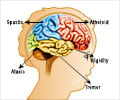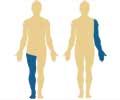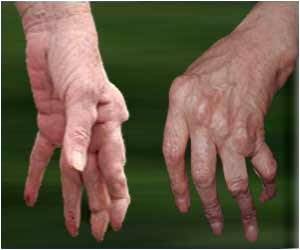Grant has been awarded to explore the genetic variants that cause cerebral palsy. CB is a developmental brain disorder that impacts early motor development

What is Cerebral Palsy
Cerebral palsy is a developmental brain disorder that impacts early motor development, balance and posture. It affects 1 in 500 people and is the most common motor disability in childhood, according to the Centers for Disease Control and Prevention. As has been found in other similar brain disorders, a growing body of evidence suggests that a large proportion of CP cases are caused by rare variants in DNA. Dr. Moreno De Luca’s study will analyze DNA sequence data from Geisinger’s MyCode® Community Health Initiative paired with electronic health data, as well as DNA sequence data from GeneDx (Sema4), a leader in genomic testing and analysis for rare disorders, to identify the individual genes and regions of the genome responsible for CP.‘Birth asphyxia—a lack of oxygen to the brain before, during, or just after birth—was considered the most frequent cause of cerebral palsy for many years, but multiple studies have shown that it accounts for less than 10 percent of all cases.’





“We anticipate that this study will provide evidence to support the inclusion of genetic testing in routine clinical care for individuals with cerebral palsy,” Dr. Moreno De Luca said. “This project could also foster future research into molecular mechanisms of disease, helping to develop targeted therapies for specific genomic variants.” Dr. Moreno De Luca’s team will also analyze MRI studies of a subgroup of participants, allowing the team to identify shared neuroimaging features related to specific genes, gene families and molecular pathways.
Source-Eurekalert












